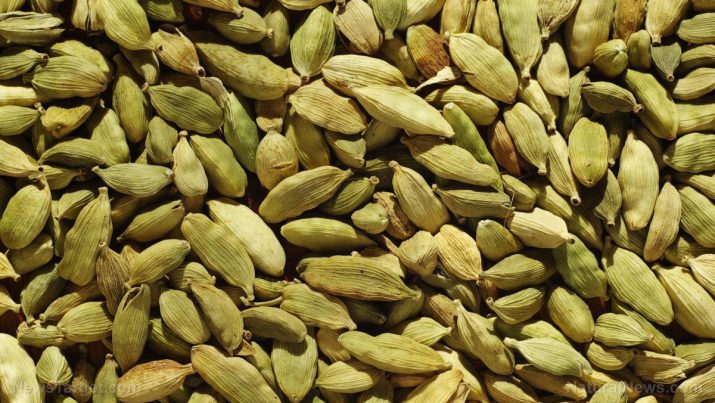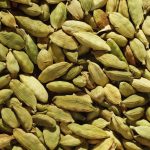
Why cardamom should be part of the diet of every diabetic patient
Friday, July 27, 2018 by Ralph Flores
http://www.naturalnewsresearch.com/2018-07-27-why-cardamom-should-be-part-of-the-diet-of-every-diabetic-patient.html

Cardamom – already hailed as the queen of spice – has a lot of things going for it. It’s widely known for its antioxidant and anti-cancer activity, but a proposed randomized control trial (RCT) could very well validate its anti-diabetic properties as well. The proposed clinical trial, which was published in BMC Complementary and Alternative Medicine, will look at the effects of green cardamom on blood sugar levels, cholesterol levels, and oxidative stress status in people with Type 2 diabetes.
“To determine the mechanism of cardamom effect on blood glucose and lipid levels, blood irisin, and SIRT1 [Sirtuin1] will be assessed,” the researchers wrote in their study.
In particular, irisin is an enzyme in the body that has been known to improve insulin sensitivity, as well as glucose metabolism, one of the things impaired by Type 2 diabetes. Earlier studies of irisin have labeled it as the exercise hormone, as it was noted to activate during exercise in both mouse and human studies. At the time of its discovery, researchers considered irisin as a promising candidate for novel interventions for weight loss, diabetes, and obesity. On the other hand, SIRT1 is known to play an important role in glucose metabolism and decrease cases of insulin resistance.
For the RCT, the researchers will select 80 patients, all of whom are either overweight or obese and have Type 2 diabetes. Participants will be randomly assigned into two groups: One is to receive a placebo, while the other will be provided with a dosage of 3 grams of green cardamom supplement a day. The test, which will run for 30 will measure various physical and biological markers to determine whether supplementing with green cardamom can improve these markers in people who have the condition.
“The selection of patients with T2DM [Type 2 diabetes mellitus] is the main strength of the present study,” the researchers added. “To the best of our knowledge, this is the first randomized controlled trial that will determine the effect of cardamom on glycemic status, lipid profile, oxidative stress biomarkers, SIRT1 and irisin in T2DM.”
How cardamom can benefit people living with diabetes
People with diabetes would do well to increase their cardamom intake: It does not only help regulate blood sugar, but it also manages other complications that come with the condition. In particular, here are some ways that cardamom can help those living with diabetes.
- Cardamom can help manage metabolic syndrome. The term, which refers to the presence of increased blood pressure, high blood sugar, and fat buildup around the waist, isn’t just a risk factor for diabetes; it can also increase your risk of heart disease and stroke. To manage this, take black and green cardamom as it helps reduce the amount of body fat and plasma triglycerides. It can also improve blood pressure and boost immune response against metabolic enzymes.
- Cardamom has antioxidant activity. Increasing cardamom intake is positively linked to its free radical scavenging activities. This prevents protein and lipid oxidation, which can cause free radical damage in the body.
- The nutrients in cardamom can help a person lose weight. Obesity, one of the main risk factors for Type 2 diabetes, is an increasing problem in both children and adults. Studies have shown, however, that taking cardamom extracts help with the body’s fat-burning process. In particular, cardamom can stimulate melatonin, which is responsible for burning white adipose tissues in the body.
- Cardamom can regulate blood pressure. People who suffer from diabetes are especially at risk for hypertension, which can also result in cardiovascular diseases, as well as digestive problems. Putting cardamom extracts in coffee or tea can help regulate blood pressure and reduce the onset of complications such as heart failure.
Do you want to learn more about how cardamom fights diabetes, cancer, and hypertension all at the same time? Follow Herbs.news today to find out.
Sources include:
Tagged Under: Tags: alternative medicine, cardamom, diabetes, diabetic, food as medicine, food cures, goodfood, goodhealth, goodmedicine, goodscience, green cardamom, herbal medicine, Herbs, natural cures, natural healing, natural medicine, nutrition, obesity, plant cures, plant medicine, remedies, research, supplements, Type 2 Diabetes





